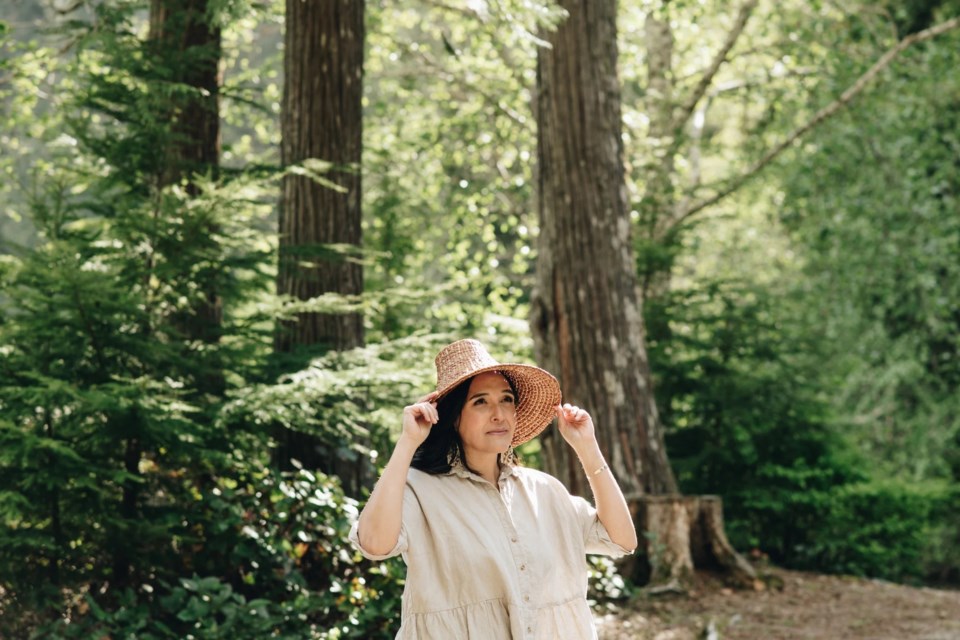In a world increasingly dominated by speed and mass production, Indigenous entrepreneurs like Leigh Joseph face the challenge of preserving traditional practices while navigating the demands of modern business.
Joseph, an ethnobotanist and member of the Sḵwx̱wuÌ7mesh UÌxwumixw (Squamish Nation), contends with these pressures through her company, where she works to uphold cultural values in an industry often driven by efficiency and profit.
Ethnobotany is the study of a region's plants and their practical uses through the traditional knowledge of a local culture and people.
“My background as an ethnobotanist helps me to understand the cultural use and importance of the botanical ingredients I incorporate into our formulations, but it also helps me to understand and communicate the broader context of the importance of Indigenous cultural knowledge renewal,” Joseph said, by email.
Growing Slow and Steady
Founded in 2017, Sḵwálwen Botanicals produces skincare products using Indigenous knowledge and sustainably sourced ingredients. The business began as an extension of Joseph’s academic and community-based research, but as it has grown, she has faced increasing pressure to adapt to the fast-paced nature of the beauty industry.
“Traditional methods of working with plants are not about rushing; they’re about respect, reciprocity, and understanding the relationship between the land and the people,” Joseph said.
“Plants are considered relatives in Sḵwx̱wuÌ7mesh culture. Because of this relational understanding of plants, it means that we can build relationships with plants, and so it is important to consider how to be in a good relationship with plants and the land. This foundation of considering plants as relatives helps shape all aspects of Sḵwálwen.”
“I’ve had to make decisions that may not be the fastest route to growth, but they are the ones that ensure we’re honouring our cultural values,” she said.
“I am consistently making decisions about the business that are grounded in cultural teachings and ethos which are in direct opposition to mass production and overconsumption.”
Ethics Over Speed
This approach contrasts with broader industry practices, where, according to a done by World Vision Canada, in 2022 alone, $798.2 million worth of Canadian imports of common makeup products were at risk of involving child labour. However, Joseph says her business is guided by ethical values that prioritize sticking to traditional methods, even when there's pressure to do things a faster, more conventional way.
Initially, Joseph hand-harvested the plants used in her products—a process that required significant time and effort. As the demand for her products grew, she began sourcing ingredients from suppliers who adhere to sustainable practices, ensuring that the integrity of her work remains intact, she said.
“Many Elders have shared with me that I hold a responsibility in how I work with plants and how I share knowledge connected to plants to do this in respectful, reciprocal, and responsible ways,” Joseph said.
“This means that I consider my responsibility to Indigenous knowledge, to the environment, and to the botanical ingredients that I am harvesting and sourcing for these products. For example, as I have grown Sḵwálwen, I have moved from hand-harvesting plant ingredients to having certain botanicals grown for our products and also sourcing botanical ingredients from sustainable suppliers. These acts are all in direct opposition to fast and mass production.”
Despite being advised to scale faster, use cheaper packaging, or compromise on quality, Joseph remains committed to her cultural teachings.
“I have had advice to scale faster, use cheaper packaging and raw materials, but I consistently need to express how making the decisions I do in the business are all driven by my ancestral teachings and cultural practices that support being in respectful, responsible, and reciprocal relationship with the land and the plant ingredients we incorporate,” Joseph said.
Learning from the Land
show that Indigenous lands often support more biodiversity than even protected areas, highlighting the critical role these traditional practices play in maintaining ecological balance.
“My hope is that Indigenous plant knowledge is protected from exploitation and that I, along with other Indigenous entrepreneurs, can find innovative ways to elevate our perspectives while safeguarding cultural knowledge,” she said.
"There is so much that can be learned from Indigenous ecological knowledge."
Bhagyashree Chatterjee is The Ğ¡À¶ÊÓƵ’s Indigenous and civic affairs reporter. This reporting beat is made possible by the



